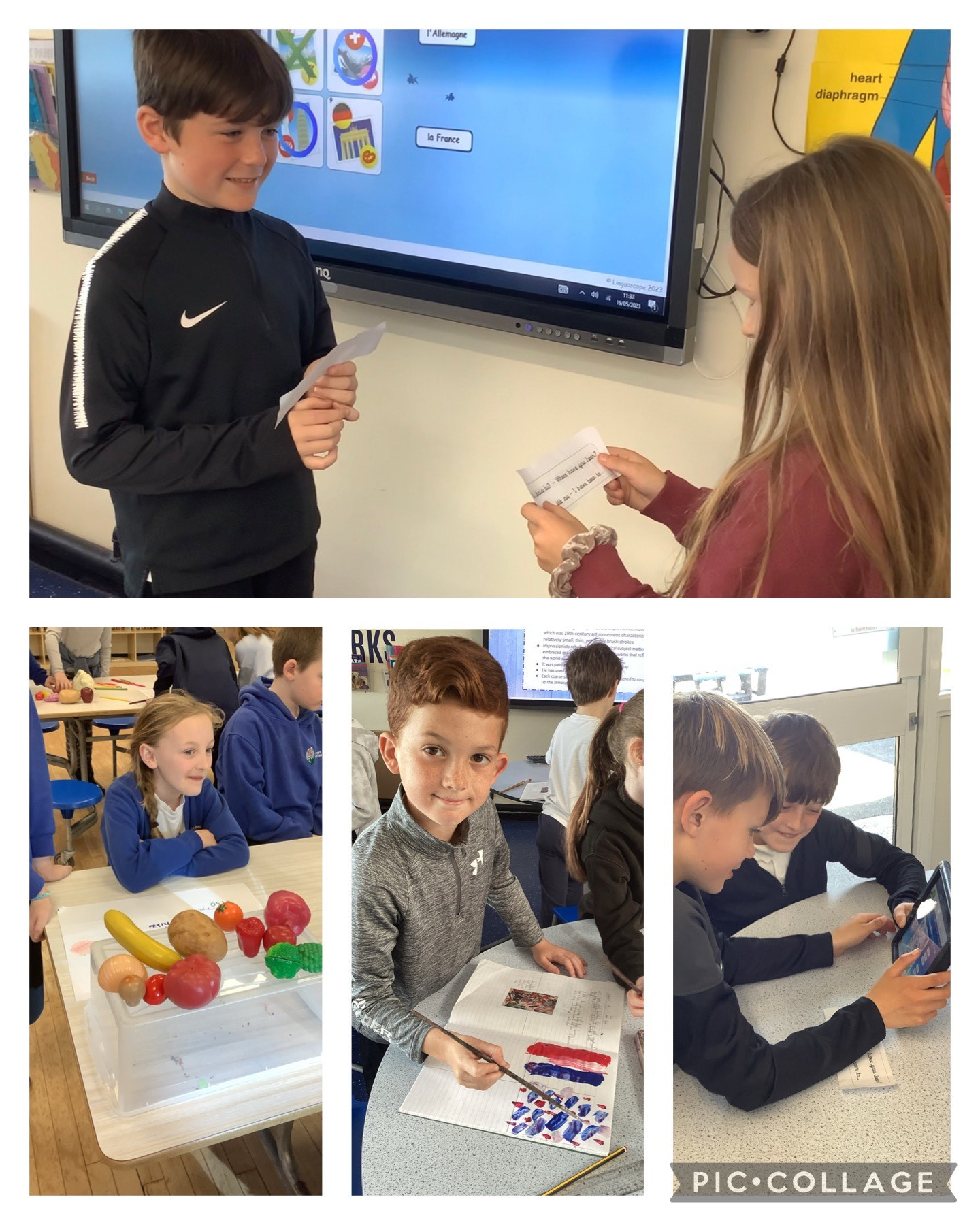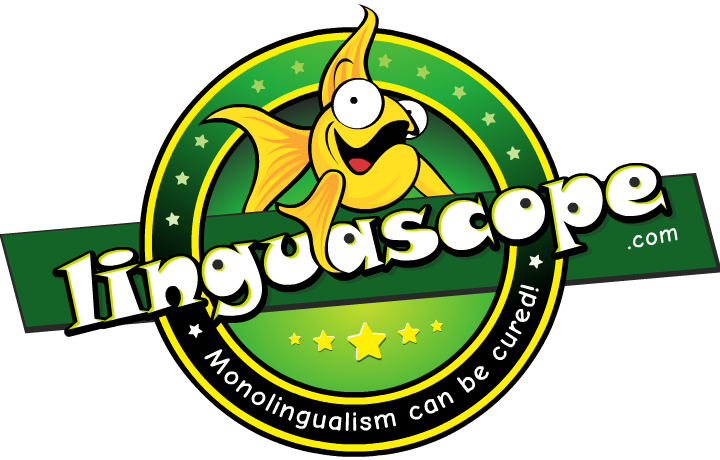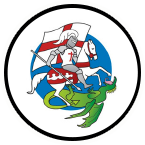Curriculum-Gallery (ID 1002)
-
English
-
Mathematics
-
Science
-
Computer Science
Computer Science
Computing (Statutory Information - Curriculum Overview menu tab)
-
Design and Technology
Design and Technology
Design and Technology (Statutory Information - Curriculum Overview menu tab)
-
History
-
Geography
-
Religious Education
Religious Education
Religious Education (Statutory Information - Curriculum Overview menu tab)
-
Modern Foreign Languages
Modern Foreign Languages
Modern Foreign Languages (Statutory Information - Curriculum Overview menu tab)
-
Physical Education
Physical Education
Physical Education (Statutory Information - Curriculum Overview menu tab)
-
PSHE
-
Art and Design
-
Music
Modern Foreign Languages
"To learn a language is to have one more window from which to look at the world."
At St George's, children study French as our chosen Modern Foreign Language. They learn that people speak different languages across the world to communicate. We look at the culture of France and other French-speaking countries as well as develop the traditional skills of listening, speaking, reading and writing.
Being a linguist at St George's Primary means...
Being curious about other countries and learning about their culture:
At St George's, our language journey begins with exploring which countries our classmates have visited and the languages locals speak in those countries. This gives us the opportunity to learn basic greetings and actions that might accompany these greetings in different countries, noticing similarities and differences compared to ours. We develop our cultural understanding with the assistance of Early Start's video resources, which allow us to see French-speaking people in action.

Listening to a foreign language:
Understanding simple words and phrases in an everyday context, such as opinions and responses to questions when modelled to us. We recognise grammatical rules as we progress, noticing how this compares to rules we know in the English language and remembering this as the basis for future language study as we get older.
Speaking in a foreign language:
Asking and answering questions in the everyday context, developing confidence to present ideas to varying audiences (partners, groups, classmates). Increasing accuracy with pronouncing learned words leads us to improving our overall speaking skills over time, even speaking with intonation to express emtoion and tell stories.
Reading in a foreign language:
Using knowledge from listening to and speaking in French to read familiar words and phrases aloud, including from short texts and poems of cultural significance in French speaking countries. As we widen our language knowledge, we are able to use what we already know to understand similar words and the overall meaning of a passage.
Writing in a foreign language:
Beginning with a modelled sentence using learned words, we write phrases relating to a range of topics with increasing independance. As we learn the key grammatical features of modelled sentences, we build sentences of our own and use tools such as dictionaries to search for unfamiliar words.

Key Questions:
We learn other languages to enrich our lives and learn about other countries, their language and their culture. Learning a language should also give us the skills and opportunity to consider visiting other countries and working or communicating with people who speak other languages.
When learning languages we ask key questions such as:
- Which countries speak this language? Is it a global language?
- What are the key sounds (phonemes) and graphemes in other languages? How are the different/similar to English?
- How do I conduct a discussion in different languages?
- What are the important nouns, adjectives and verbs in different languages?
- How do I count in different languages?
- How does this language reflect the culture and history of the countries where locals speak it?
- What do I know about this country? What are the important historical events? What is its cultural importance?
Essential key skills:
- Ask questions about the country/culture to gain an overall picture of the setting that uses the language.
- Use phonetic knowledge to support spoken word and pronunciation.
- Develop an increasing grasp of pronunciation and intonation to aid accuracy in spoken language.
- Build a rich and varied vocabulary to become effective and interested communicators.
- Refine conversational skills to be able to ask for and understand information.
- Write grammatically accurate sentences to give information or answers.
- Notice the patterns of language to understand the similarities and differences compared to English.
Useful links:

Files to Download
-
french-phonics-overview docx
download_for_offline
download_for_offlinefrench-phonics-overview docx
- mfl-languages-curriculum---st-georges-statement pdf download_for_offline
↑download_for_offlinemfl-languages-curriculum---st-georges-statement pdf
- mfl-long-term-plan-synopsis---year-3-and-4 pdf download_for_offline
download_for_offlinemfl-long-term-plan-synopsis---year-3-and-4 pdf
- mfl-long-term-plan-synopsis---year-5-and-6 pdf download_for_offline
download_for_offlinemfl-long-term-plan-synopsis---year-5-and-6 pdf
- progression-in-languages-mfl docx download_for_offline
download_for_offlineprogression-in-languages-mfl docx
- mfl-languages-curriculum---st-georges-statement pdf download_for_offline


